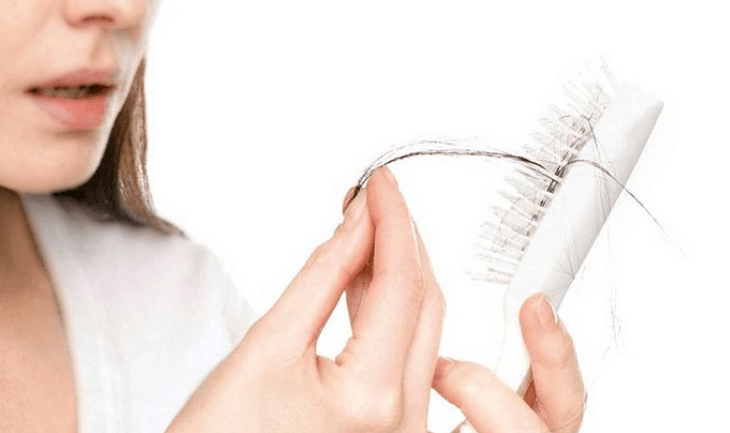Hair Loss Causes and Treatments
Are you losing your hair by handles? You are not alone. 320 million peoples in the U.S facing hair loss.
Why do we lose our hair?
The hair grows for about six years in women, lives a few days before entering the death phase (called telogen ) – which lasts several weeks to several months – before the fall. We have about 100,000 hairs on the skull, and we lose between 60 and 100 per day, which assures renewal without loss of mass. But it happens that the hair begins to fall suddenly and diffusely, exceeding this threshold of 100 per day – useless to count, an acute hair loss is noticed, especially in the shower, explain the doctors. It can be due to many factors, without being pathological.
Thus, in spring and even more in autumn, the hair falls like dead leaves. This seasonal fall, completely normal, corresponds to the hormonal impact of variations in luminosity and does not exceed six weeks.
The maternity also affects hair loss: artificially in the bulb during pregnancy, they find themselves more in the telogen phase with childbirth. One in two women is affected by postpartum alopecia. Do not panic.
Causes OF Hair Loss:
Male Hormones
Male hormones and baldness are closely related terms. Adenomas strongly influence the natural cycle of our hair. In men as in women they accelerate hair regrowth except that after several cycles of loss-regrowth, the hair no longer regrows. The front of the gulfs becomes bald. Note that in women the androgen hormones responsible for hair loss are very active during menopause or after childbirth
Hereditary factors
Excessive hair loss can sometimes be caused by a specific disorder or disease.
The bad news is that in these cases, its treatment becomes more difficult since these are genetic issues.
Hair loss takes place from the age of 20 and often increases over time.
What to do?
Consult a doctor to determine the exact cause and ask for a suitable treatment to reduce hair loss.
Diet
Too strict a diet can also cause alopecia. “The tissues of the body that renew themselves the quickest are the most impacted by such a diet. However, the hair renews itself very quickly.” These diets can cause deficiencies, themselves responsible for accelerated hair loss (zinc deficiency, magnesium deficiency, calcium deficiency and especially iron deficiency).
testosterone
Both men and women have two types of hormones: testosterone and DiHydroTestosterone (DHT). It is, in any case, testosterone which is propagated in the blood to transform into DiHydroTestosterone under the influence of enzymes called the 5 alphas reductase. Over time, this fusion causes premature aging of the hair. The amount of testosterone secreted is not the cause of hair loss but how it is taken up by receptors and then transformed into DHT under the influence of the hyperactivity of the 5 alphas reductase. The DHT then deteriorates the role of the follicles. Thus, the sebaceous secretion is increased and the course of the development cycles of the hair becomes abnormal.
Stress and depression
Stress and depression are another possible cause of hair loss. They can be the cause of alopecia areata, which is a particular form of hair loss, or bleaching of the hair since white hair falls last. Other causes of alopecia areata exist, especially in case of dental problems.
Iron Deficiency
Iron is a hair regrowth facilitator. A balanced diet and above all rich in iron can prevent you or even cure you of your favus and this regardless of the causes mentioned above. In case of hair loss, the ideal solution would, therefore, be to check the iron level in the body.
Hair Loss Treatments
The treatment of hair loss is above all that of its cause. If the origin is hormonal, an appropriate assessment and therapy will be offered. “We can also give a cocktail of vitamins for one to three months,” says the dermatologist. A sulfur amino acid in tablet form (cysteine) is prescribed, as are lotions of minoxidil.
• Anti-hair loss lotions and shampoos
It all depends on the severity of the fall. For weak or medium hair loss, some lotions are useful. On the other hand, when the thinning is really important, it is necessary to consult a dermatologist and to turn to medication treatment. Minoxidil® lotions 2% for women and 5% for men are effective. “Note that minoxidil is quite oily which can give an unsightly appearance to the hair. Also, the presence of propylene glycol in these products can induce allergies, in one case out of 20” specifies Dr. Rigon. If this is not enough, men can be treated with finasteride® medication in tablet form.
• Hair transplant
When the person suffers too much from hair loss, they can offer a hair transplant in the form of a micro-graft. It is a surgical procedure under local anesthesia that lasts 2 to 3 hours. Hair implanted at the back of the scalp is moved to transplant it to the front. Indeed, the back hair is not subjected to hormones and is therefore spared the phenomenon of baldness. In other words, the hair grafted to the front of the skull will persist and be renewed normally throughout the life of the individual operating on.
How to react?
A blood test can identify a possible thyroid disorder or deficiency. We then dose iron, zinc, folate (vitamins B9), which the doctor will supplement by prescribing the appropriate nutrients. A trichogram, that is to say, a study of the roots under a microscope, also makes it possible to determine the causes of hair loss.
To stimulate the hair follicle and rebalance the vital functions of the hair, we can turn to dermo-cosmetic spray treatments, to be penetrated by massaging the scalp. They are found in Ducray (based on tetrapeptides) or Klorane (quinine and caffeine). One imperative, be patient: there will be no results before 4 months of treatment.
